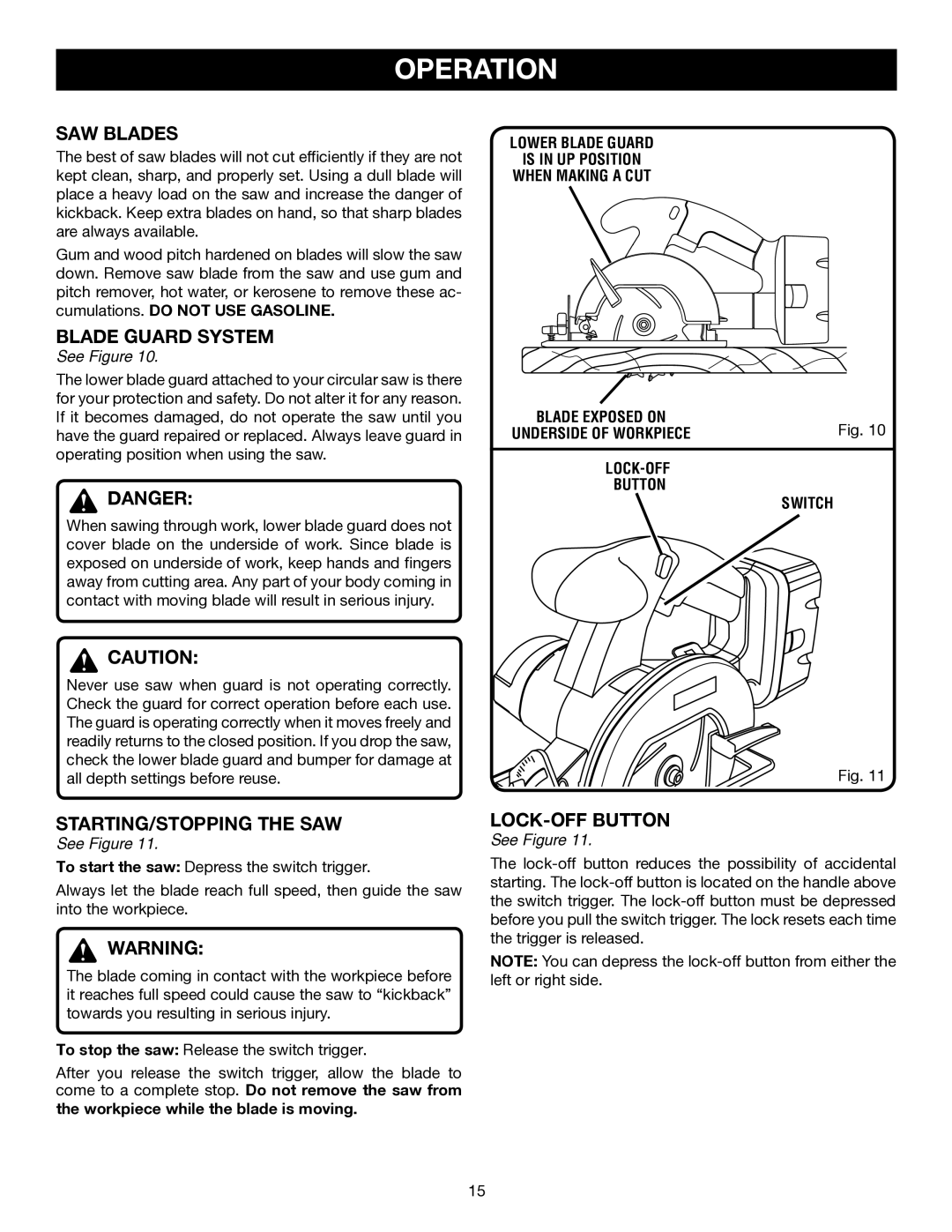
OPERATION
SAW BLADES
The best of saw blades will not cut efficiently if they are not kept clean, sharp, and properly set. Using a dull blade will place a heavy load on the saw and increase the danger of kickback. Keep extra blades on hand, so that sharp blades are always available.
Gum and wood pitch hardened on blades will slow the saw down. Remove saw blade from the saw and use gum and pitch remover, hot water, or kerosene to remove these ac- cumulations. DO NOT USE GASOLINE.
BLADE GUARD SYSTEM
See Figure 10.
The lower blade guard attached to your circular saw is there for your protection and safety. Do not alter it for any reason. If it becomes damaged, do not operate the saw until you have the guard repaired or replaced. Always leave guard in operating position when using the saw.
![]() DANGER:
DANGER:
When sawing through work, lower blade guard does not cover blade on the underside of work. Since blade is exposed on underside of work, keep hands and fingers away from cutting area. Any part of your body coming in contact with moving blade will result in serious injury.
![]() CAUTION:
CAUTION:
Never use saw when guard is not operating correctly. Check the guard for correct operation before each use. The guard is operating correctly when it moves freely and readily returns to the closed position. If you drop the saw, check the lower blade guard and bumper for damage at all depth settings before reuse.
LOWER BLADE GUARD
IS IN UP POSITION
WHEN MAKING A CUT
BLADE EXPOSED ON | Fig. 10 |
UNDERSIDE OF WORKPIECE | |
|
|
|
|
BUTTON | SWITCH |
|
Fig. 11
STARTING/STOPPING THE SAW
See Figure 11.
To start the saw: Depress the switch trigger.
Always let the blade reach full speed, then guide the saw into the workpiece.
![]() WARNING:
WARNING:
The blade coming in contact with the workpiece before it reaches full speed could cause the saw to “kickback” towards you resulting in serious injury.
To stop the saw: Release the switch trigger.
After you release the switch trigger, allow the blade to come to a complete stop. Do not remove the saw from
the workpiece while the blade is moving.
See Figure 11.
The
NOTE: You can depress the
15
